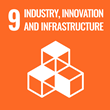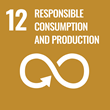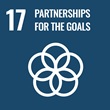
Project information
Unraveling the role of polyhydroxyalkanoates in Schlegelella thermodepolymerans – promising environmental bacterium for next generation biotechnology
(PHAST)

- Project Identification
- GA22-10845S
- Project Period
- 1/2022 - 12/2025
- Investor / Pogramme / Project type
-
Czech Science Foundation
- Standard Projects
- MU Faculty or unit
- Faculty of Informatics
- Other MU Faculty/Unit
-
Faculty of Science
- doc. Mgr. Pavel Dvořák, Ph.D.
- Mgr. Barbora Popelářová
- Cooperating Organization
-
Brno University of Technology
- Responsible person Doc. Ing. Stanislav Obruča, Ph.D.
Schlegelella thermodepolymerans is a thermophilic bacterium that was isolated thanks to capability of polymer degradation. Nevertheless, we have recently identified the extraordinary biotechnological potential of the bacterium within the concept of Next Generation Biotechnology. Apart from polymer degradation, S. thermodepolymerans is also able to produce polyhydroxyalkanoates (PHA), microbial polyesters serving as a storage of carbon and energy and enhancing stress robustness of bacterial cells against numerous environmental stressors. Moreover, PHA are considered to be an ecological alternative to petrochemical polymers. In the proposed project we will in-depth look into PHA metabolism of S. thermodepolymerans especially in the context of stress robustness of the bacterium, we will construct a detailed metabolic model, develop and optimize molecular tools for genome editing and we will also test the employment of the bacterium in the most promising biotechnological applications - production of PHA, biodegradation of polymers and biotransformation/degradation of phenolic compounds.
Sustainable Development Goals
Masaryk University is committed to the UN Sustainable Development Goals, which aim to improve the conditions and quality of life on our planet by 2030.
Publications
Total number of publications: 13
2024
-
BNClassifier: Classifying Boolean Models by Dynamic Properties
Computational Methods in Systems Biology, year: 2024
-
Testing components of the CRISPR/Cas system for genetic manipulation of thermophilic bacteria of the genus Caldimonas
Year: 2024, type: Appeared in Conference without Proceedings
2023
-
Boolean network sketches: a unifying framework for logical model inference
Bioinformatics, year: 2023, volume: 39, edition: 4, DOI
-
Combining formal methods and Bayesian approach for inferring discrete-state stochastic models from steady-state data
Plos one, year: 2023, volume: 18, edition: 11, DOI
-
Developing a genetic manipulation toolkit for Caldimonas thermodepolymerans
Year: 2023, type: Appeared in Conference without Proceedings
-
Phenotype Control of Partially Specified Boolean Networks
Computational Methods in Systems Biology, year: 2023
-
PUSH-based Strategy to Increase Glycolytic Flux in Pseudomonas putida from co-Utilized Cellulosic Sugars to Biopolymer Precursors
Year: 2023, type: Appeared in Conference without Proceedings
-
Rule-based Modelling of Biological Systems Using Regulated Rewriting
Biosystems, year: 2023, volume: 225, edition: 104843, DOI
-
Temporary and Permanent Control of Partially Specified Boolean Networks
BIOSYSTEMS, year: 2023, volume: 223, edition: JAN, DOI
-
Water potential governs the effector specificity of the transcriptional regulator XylR of Pseudomonas putida
Environmental Microbiology, year: 2023, volume: 25, edition: 5, DOI




